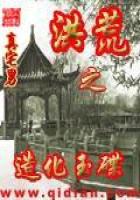When the message rate was fairly well established, Hudson died--fell suddenly to the ground as he was about to step into a railway carriage. In his place came Frederick P. Fish, also a lawyer and a Bostonian. Fish was a popular, optimistic man, with a "full-speed-ahead"temperament. He pushed the policy of expansion until he broke all the records. He borrowed money in stupendous amounts--$150,000,000 at one time--and flung it into a campaign of red-hot development. More business he demanded, and more, and more, until his captains, like a thirty-horse team of galloping horses, became very nearly uncontrollable.
It was a fast and furious period. The whole country was ablaze with a passion of prosperity.
After generations of conflict, the men with large ideas had at last put to rout the men of small ideas. The waste and folly of competition had everywhere driven men to the policy of cooperation.
Mills were linked to mills and factories to factories, in a vast mutualism of industry such as no other age, perhaps, has ever known. And as the telephone is essentially the instrument of co-working and interdependent people, it found itself suddenly welcomed as the most popular and indispensable of all the agencies that put men in touch with each other.
To describe this growth in a single sentence, we might say that the Bell telephone secured its first million of capital in 1879; its first million of earnings in 1882; its first million of dividends in 1884; its first million of surplus in 1885. It had paid out its first million for legal expenses by 1886; began first to send a million messages a day in 1888; had strung its first million miles of wire in 1900; and had installed its first million telephones in 1898. By 1897 it had spun as many cobwebs of wire as the mighty Western Union itself; by 1900 it had twice as many miles of wire as the Western Union, and in 1905 FIVETIMES as many. Such was the plunging progress of the Bell Companies in this period of expansion, that by 1905 they had swept past all European countries combined, not only in the quality of the service but in the actual number of telephones in use. This, too, without a cent of public money, or the protection of a tariff, or the prestige of a governmental bureau.
By 1892 Boston and New York were talking to Chicago, Milwaukee, Pittsburg, and Washington.
One-half of the people of the United States were within talking distance of each other.
The THOUSAND-MILE TALK had ceased to be a fairy tale. Several years later the western end of the line was pushed over the plains to Nebraska, enabling the spoken word in Boston to be heard in Omaha. Slowly and with much effort the public were taught to substitute the telephone for travel. A special long-distance salon was fitted up in New York City to entice people into the habit of talking to other cities. Cabs were sent for customers; and when one arrived, he was escorted over Oriental rugs to a gilded booth, draped with silken curtains. This was the famous "Room Nine." By such and many other allurements a larger idea of telephone service was given to the public mind; until in 1909 at least eighteen thousand New York-Chicago conversa-tions were held, and the revenue from strictly long-distance messages was twenty-two thousand dollars a day.
By 1906 even the Rocky Mountain Bell Company had grown to be a ten-million-dollar enterprise.
It began at Salt Lake City with a hundred telephones, in 1880. Then it reached out to master an area of four hundred and thirteen thousand square miles--a great Lone Land of undeveloped resources. Its linemen groped through dense forests where their poles looked like toothpicks beside the towering pines and cedars. They girdled the mountains and basted the prairies with wire, until the lonely places were brought together and made sociable.
They drove off the Indians, who wanted the bright wire for ear-rings and bracelets; and the bears, which mistook the humming of the wires for the buzzing of bees, and persisted in gnawing the poles down. With the most heroic optimism, this Rocky Mountain Company persevered until, in 1906, it had created a seventy-thousand-mile nerve-system for the far West.
Chicago, in this year, had two hundred thou- sand telephones in use, in her two hundred square miles of area. The business had been built up by General Anson Stager, who was himself wealthy, and able to attract the support of such men as John Crerar, H. H. Porter, and Robert T. Lincoln. Since 1882 it has paid dividends, and in one glorious year its stock soared to four hundred dollars a share. The old-timers--the men who clambered over roof-tops in 1878 and tacked iron wires wherever they could without being chased off--are still for the most part in control of the Chicago company.
But as might have been expected, it was New York City that was the record-breaker when the era of telephone expansion arrived. Here the flood of big business struck with the force of a tidal wave. The number of users leaped from 56,000 in 1900 up to 810,000 in 1908. In a single year of sweating and breathless activity, 65,000 new telephones were put on desks or hung on walls--an average of one new user for every two minutes of the business day.
Literally tons, and hundreds of tons, of telephones were hauled in drays from the factory and put in place in New York's homes and offices. More and more were demanded, until to-day there are more telephones in New York than there are in the four countries, France, Belgium, Holland, and Switzerland combined.
As a user of telephones New York has risen to be unapproachable. Mass together all the telephones of London, Glasgow, Liverpool, Manchester, Birmingham, Leeds, Sheffleld, Bristol, and Belfast, and there will even then be barely as many as are carrying the conversations of this one American city.















